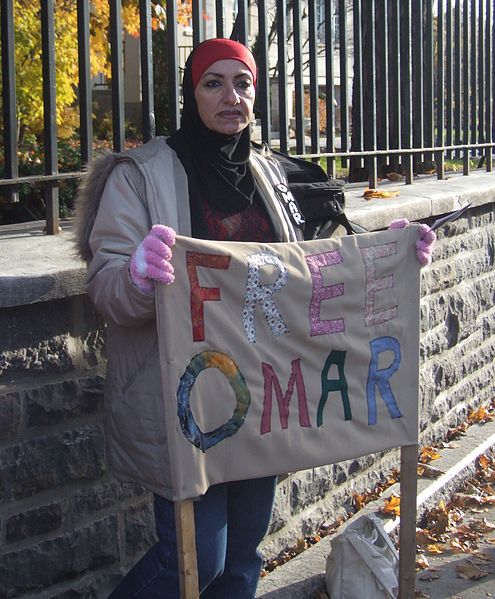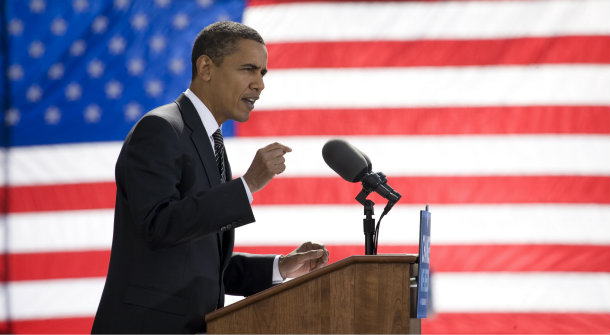Since July, 2002, Canadian Omar Khadr has been incarcerated following his capture in Afghanistan when a firefight left one US soldier dead. Khadr, himself wounded in the firefight, was initially transferred to the US Bagram Air Force base. He was held prisoner there until October, 2002, when he was transferred to Guantanamo Bay, outside United States or Canadian jurisdiction. Khadr spent ten years imprisoned at Guantanamo, where he was tortured and abused on more than one occasion.
In October 2010, Khadr agreed to a plea bargain wherein he pled guilty to five charges including murder in order to avoid a war crimes trial, and an indefinite sentence in Guantanamo. The plea bargain allowed for an eight year sentence and the possibility of returning to Canada for the remainder of his sentence. In 2012 he was transferred to a prison in Alberta where he remains today.
Khadr has once again been in headlines in the past month as he seeks to be released on bail while at the same time appealing his original conviction in the US. After spending 13 years in prison, 28 year-old Khadr deserves it. The abuse that he suffered while imprisoned in Guantanamo Bay is often justified by his familial affiliations and the specific circumstances of his arrest. Khadr’s torture was justified through a moral calculation of extreme circumstances that provide legitimacy to human rights abuses. Under exceptional circumstances such as these, torture, to many people, becomes permissible despite its illegality. In a rational calculation of moral consequences, torture and abuse become acceptable because they are lesser evils.
The torture and abuse of Khadr were seen as lesser evils, morally reprehensible acts committed in order to prevent a greater evil from occurring. In this way, there was a moral devaluation of Khadr given his identity and the supposed that threat he posed to Western society. This calculation was born out of a state of exception, one that existed in the fear that followed the events of September 11, 2001.
Carl Schmitt wrote nearly a century ago that it is the sovereign who decides on the exception; that there is “no norm that is applicable to chaos.” Thus, in order for a situation to really make sense to state actors, a normal situation must exist. Ultimately, the sovereign has the monopoly to decide what the exception is, and this, to Schmitt, reveals the true character of the state’s authority. Suspending law in an exceptional situation for the longevity of the state, or self-preservation, is to Schmitt proof of the state’s superiority over legal order in these cases.
Reasoning for this argument is also found in the contemporary writings of political philosopher Giorgio Agamben, who wrote extensively on the state of exception and the implications of this for liberal democracies. To Agamben, the state of exception exists in a “no-man’s-land between public law and political fact” that is founded out of a “state of necessity.” Captured by the Latin phrase necessitas legem non habet [necessity has no law] the state of exception surfaces out of emergency situations that do not have solutions based within law.
The world that existed in the months and years immediately following 9/11 clearly did not fit into a situation that could be classified as normal by Western leaders at the time. The state of exception that existed in the post- 9/11 decade was one that transcended legal norms. Omar Khadr was caught up in this state of exception, as just a year prior to his capture the US Patriot Act was issued by the US Senate. As Agamben points out, those individuals who are taken into custody under these pretenses have their legal status erased; this creates an unclassifiable being for whom no legal norm exists. Khadr became one of those unclassifiable beings while imprisoned in Guantanamo. Furthermore, Agamben writes that for Western democracies, “…the declaration of the state of exception has gradually been replaced by an unprecedented generalization of the paradigm of security as the normal technique of government.” This is certainly the case for Khadr; the exceptional circumstances that led to his capture keeps him imprisoned in Canada. If a perceived notion of necessity released the American and Canadian governments from their obligation to follow the law, some might argue that those legal norms that once dictated their actions should be observed upon the cessation of the state of exception.
As Khadr awaits his release, be it next week, next month, next year, or 2018 when his sentence expires, we certainly have a lot to think about. While Khadr’s case is now being reviewed with a proper observation of the rule of law, there is still controversy. The re-emergence of Khadr’s case is concurrent with an on-going debate about security in Canada. Regardless of where one stands in that debate, Khadr’s case represents one out of the legal norm that cannot be examined alongside many others. Whether or not the state of exception has become the rule in Canada can certainly be debated, as can its necessity.





